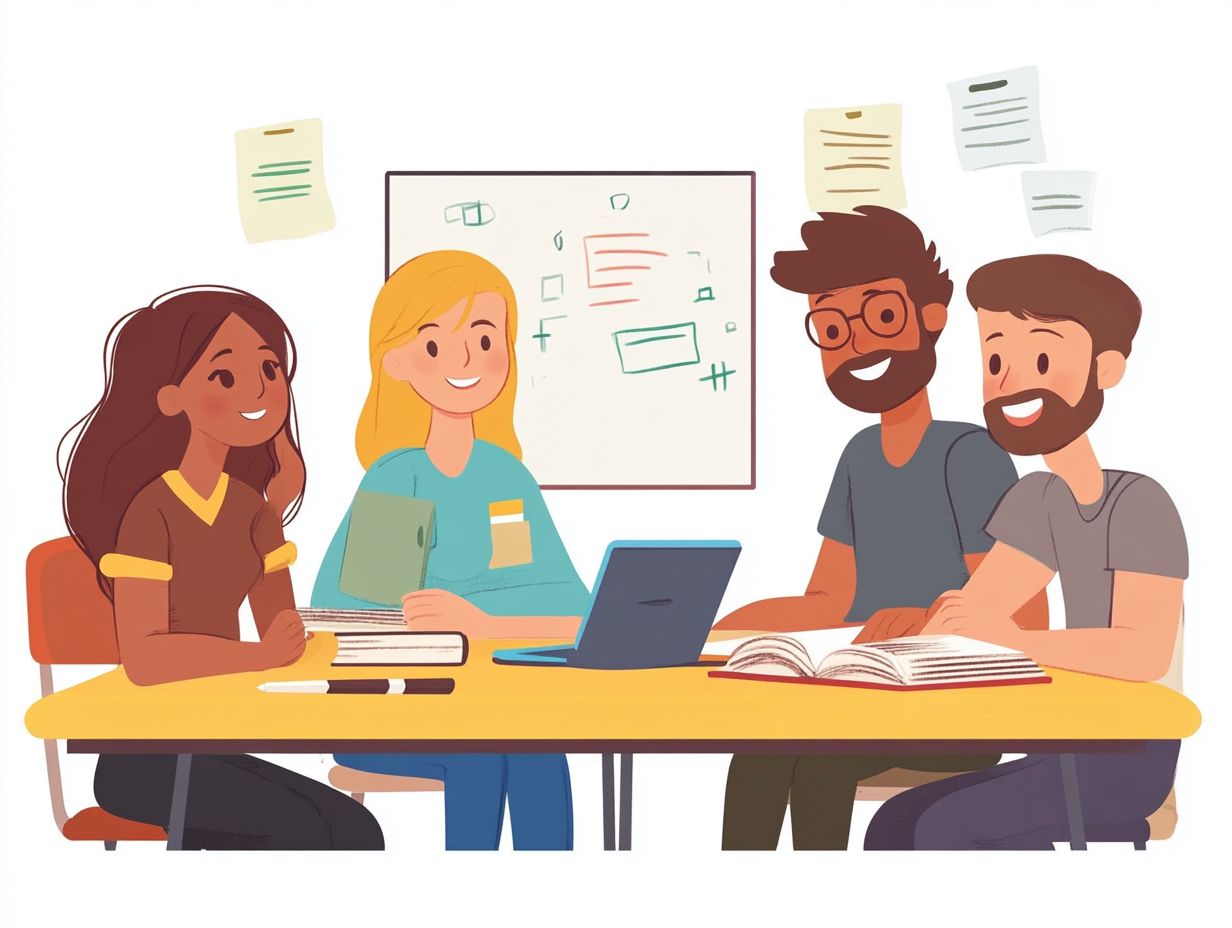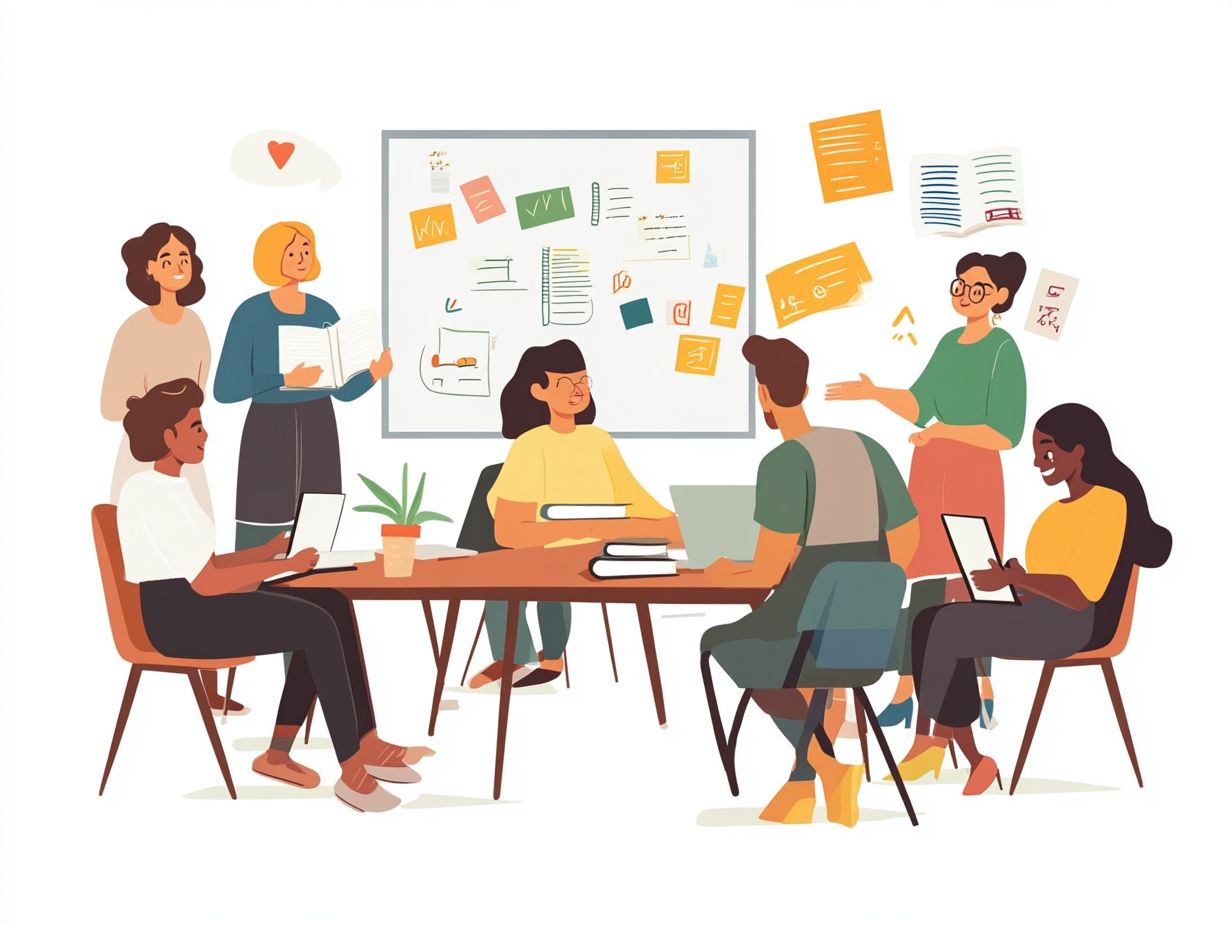top language learning challenges and solutions
Language learning can be an exhilarating journey, yet it often presents its fair share of challenges. You may encounter common obstacles that hinder your progress, such as mastering pronunciation and struggling with complex grammar rules.
This guide delves into these challenges while offering effective strategies to overcome them. You ll discover insightful tips for breaking down language barriers, maintaining your motivation, and maximizing your learning opportunities through immersion techniques.
Whether you re just embarking on this adventure or seeking to refine your skills, this guide equips you with valuable resources to keep you on the path to success.
Contents
- Key Takeaways:
- Challenges in Language Learning
- Effective Strategies for Overcoming Challenges
- Dealing with Language Barriers
- Staying Motivated and Consistent
- Maximizing Learning Opportunities
- Frequently Asked Questions
- What are the top language learning challenges?
- How can I overcome the challenge of memorizing new vocabulary?
- What can I do to improve my pronunciation and grammar?
- What can I do if I don’t have the opportunity for language immersion?
- How can I manage the overwhelming amount of material to learn?
- What are the benefits of facing language learning challenges?
Key Takeaways:

Language learning can be challenging, but common obstacles such as lack of motivation and consistency can be overcome with effective strategies. Communication strategies and resources, along with immersion and practice techniques, can help overcome language barriers and maximize learning opportunities. Staying motivated and consistent is key to success in language learning, and finding ways to stay on track and avoid burnout is crucial for long-term progress.
Challenges in Language Learning
Language learning presents you with a multitude of challenges that can impede your progress and dampen your enthusiasm. As you navigate the complexities of overcoming language barriers and striving for fluency, you’re likely to encounter obstacles like a limited vocabulary and common pitfalls. Exploring the top language learning strategies for success can help you tackle these varying skill levels effectively.
Each language, be it English, Spanish, or Chinese, brings its own unique intricacies, adding layers to your journey. A lack of effective strategies can make these difficulties worse, making it hard to reach a good skill level in speaking, listening, and writing.
Recognizing these challenges is essential for anyone dedicated to mastering a new language.
Common Obstacles and Difficulties
Common obstacles in language learning include a lack of exposure, inadequate vocabulary, and challenges in fluency, all of which can significantly impede your progress. These barriers may appear daunting, particularly if you don t have regular interactions with native speakers.
When opportunities for real-life conversation are limited, it can feel isolating and make it tough to practice and refine your spoken skills. Many learners face the struggle of vocabulary retention, which is essential for expressing your thoughts clearly and engaging in meaningful discussions.
Mistakes whether they re incorrect pronunciation or grammar issues can chip away at your confidence, leading to hesitation in conversations. These factors create a cycle that can make achieving fluency a formidable challenge.
To navigate through these difficulties, you’ll need to employ targeted strategies that can help you overcome each hurdle with finesse.
Effective Strategies for Overcoming Challenges
Ready to tackle your language learning challenges? Let s explore some effective strategies! Effective strategies for overcoming language learning challenges are essential as you navigate the complexities of mastering a new language.
You can boost your skills using fun techniques such as immersive experiences and leveraging educational support. Engaging with a language partner or utilizing online resources like Duolingo and Babbel can facilitate practice and provide the exposure you need.
Additionally, maintaining your motivation is crucial; it ensures steady progress, allowing you to build confidence and continuously improve your language proficiency.
Tips and Techniques for Success

Implementing effective language learning tips and techniques can significantly elevate your journey toward fluency and comprehension. By committing just a bit of time each day to practice, you can establish a solid foundation.
A strong grasp of grammar is essential, as it enables you to construct sentences accurately and with confidence. Embracing multimedia resources think podcasts, videos, and mobile apps not only makes your learning experience enjoyable but also enriches your vocabulary and listening skills.
Setting achievable goals is a powerful motivator; for instance, aiming to learn a specific number of words each week can provide a satisfying sense of accomplishment. Regularly reviewing what you’ve learned ensures retention, making it easier to recall information when needed.
This strategy leads to better conversations. Start your daily practice now to see quick improvements!
Dealing with Language Barriers
Navigating language barriers is a challenge many learners encounter. This often leads to feelings of frustration and inadequacy.
These barriers can obstruct effective communication, making it tough to engage in speaking, writing, and understanding conversations.
However, by using strategic communication methods and immersing yourself in interactions with native speakers, you can enhance your experiences and discover the subtle nuances of how words are used.
Conquering these obstacles is crucial for developing comprehensive language skills and attaining fluency in any language.
Communication Strategies and Resources
Effective communication strategies are essential for overcoming language barriers and enhancing your overall language proficiency. These approaches help you understand others and encourage meaningful interactions with individuals from diverse backgrounds.
Utilizing online resources can further elevate your efforts. Language applications like Duolingo and Babbel offer structured lessons and engaging activities designed for various learning styles.
It s important to apply your skills in real-world situations, like conversing with native speakers or joining language exchange meetups. This hands-on practice builds your confidence and fluency, allowing for smoother communication and deeper connections with others.
Staying Motivated and Consistent
Stay motivated and consistent to unlock your language skills today! Your commitment to your goals, paired with daily efforts, will profoundly influence your ability to master new vocabulary and grammar rules.
Incorporate practices like maintaining a daily journal and setting realistic milestones. This creates a supportive environment that encourages your growth. Celebrate your small victories to boost motivation and reinforce the importance of consistent practice in honing your language skills.
Ways to Stay on Track and Avoid Burnout

To stay on track in your language learning journey and avoid burnout, implement effective strategies while maintaining balance.
Diversifying your learning methods creates a more engaging and less monotonous experience. Incorporate various resources think podcasts, apps, and interactive games to keep the process fresh and exciting.
Taking regular breaks can significantly boost your retention and focus, steering you clear of mental fatigue from prolonged study sessions. Weaving enjoyable activities into your practice routine, such as conversing with native speakers or immersing yourself in music and films in your target language, fosters deeper connections and helps sustain your motivation over time.
Maximizing Learning Opportunities
Maximize your learning opportunities through language immersion and effective practice techniques to significantly elevate your proficiency in any language.
Engaging fully with the language in real-world contexts and employing strategic methods enriches your understanding and fluency, paving the way for a truly rewarding learning experience.
Immersion and Practice Techniques
Immersion and practice techniques are essential for achieving proficiency in language learning, engaging your various senses to deepen your understanding.
Weaving real-life experiences into your learning process helps you navigate authentic conversations, solidifying your grasp of vocabulary and nuances in context.
Visual aids, like videos or infographics, enrich your experience by providing context to new words, making them easier to remember.
Auditory resources such as podcasts or music help you tune in to pronunciation and rhythm critical elements for fluency.
Kinesthetic methods that involve movement or hands-on activities create memorable associations, significantly enhancing your retention.
By combining these approaches, you ll embark on a well-rounded language learning journey, ensuring that you are informed, engaged, and motivated.
Frequently Asked Questions
What are the top language learning challenges?

Top language learning challenges include memorizing new vocabulary, mastering pronunciation, and understanding grammar. Many feel overwhelmed by the amount of material to learn and lack opportunities for language immersion, which can affect their motivation in language learning.
How can I overcome the challenge of memorizing new vocabulary?
Use a method that helps you remember words by reviewing them at specific times. Visual aids or association techniques can also make it easier to recall new words.
What can I do to improve my pronunciation and grammar?
Practice speaking with a native speaker or a tutor. Listening to recordings or watching videos can enhance your skills and help you mimic pronunciation and intonation.
What can I do if I don’t have the opportunity for language immersion?
Create your own immersion by surrounding yourself with the language. Listen to music, watch movies, or read books, and seek online language exchange partners to practice speaking.
How can I manage the overwhelming amount of material to learn?
Break your learning into smaller, manageable chunks. Set realistic goals and focus on one aspect of the language at a time, prioritizing the most important vocabulary and grammar.
What are the benefits of facing language learning challenges?
Overcoming challenges makes you a more resilient learner. It enhances your problem-solving skills and deepens your appreciation for the language and culture you are studying.






